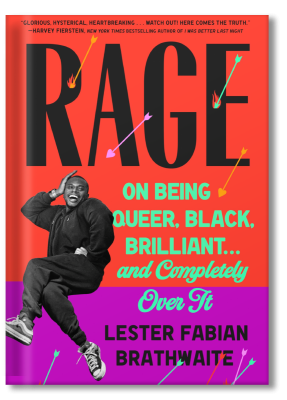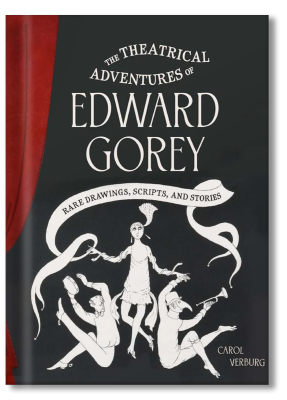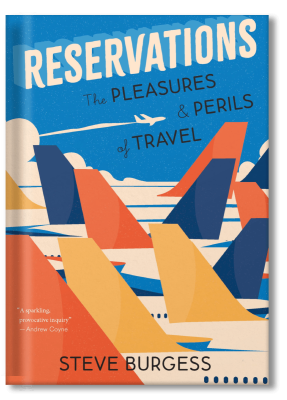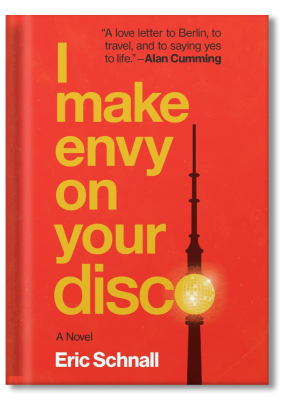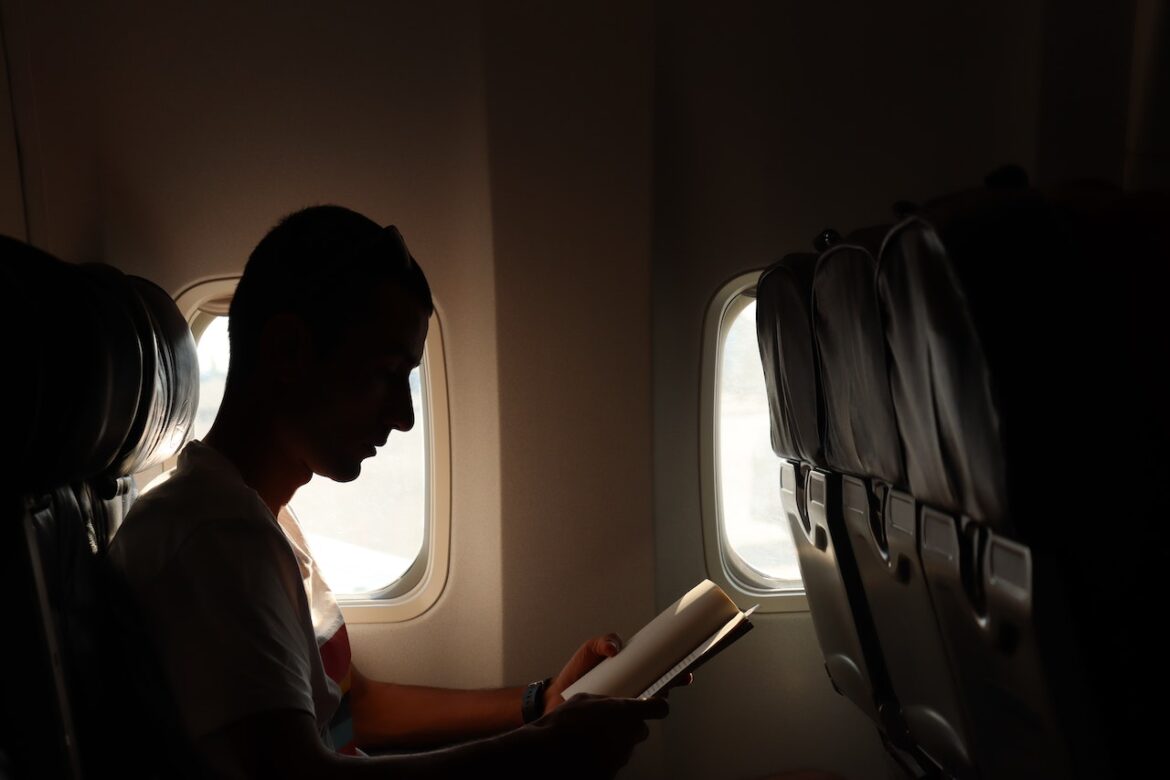Passport spotlights some dynamic reads for your next getaway. Rage by Lester Fabian Brathwaite offers a raw, unapologetic exploration of identity and passion that will leave you reeling. Reservations by Steve Burgess is a witty, wanderlust-infused tale of love, loss, and navigating life’s detours. Meanwhile, Carol Verburg’s Edward Gorey pulls back the curtain on the enigmatic illustrator with a richly detailed biography, perfect for art and literary aficionados.
The search for a missing dildo meets James Joyce’s Ulysses in How to Leave the House (Viking. $29. nathannewmanrules.com), the rambunctiously funny, unexpectedly touching debut novel from author Nathan Newman. As in Ulysses, the loose-jointed story takes place over the course of a single day’s wanderings, popping in and out of several characters’ points-of-view. The yarn unravels in a small English town on the day before our 23-year-old protagonist, Natwest, finally heads off to college after three post-secondary school years of failing and retaking his entrance exams while living at home with his single mother. He’s raring to go, but anxious over the late delivery of a nine inch toy he’s ordered online and doesn’t want to fall into Mum’s hands. In a day of cockeyed perambulations through his hometown and childhood memories, Natwest bumps into a series of eccentric characters including the imam of the local mosque, who is carrying on a peculiar extramarital dalliance with a Protestant vicar; the town dentist who aspires to be a fine artist but finds himself unable to paint anything but mouths in close-up; a lonely teacher who mentored Natwest through high school; a girl whose nude photos have been leaked onto the internet; and, lastly, a middle-aged hook-up known only as Daddy with whom Natwest engages in a sexual encounter that’s simultaneously cringey and heart wrenching. Early on, it’s unclear why Newman is doing so much head-hopping among his characters; but be patient with the story’s irregular rhythms. This is a generous portrait of collective humanity, at once mundane and magical.
“I detest the phrase ‘representation matters’ because it doesn’t mean anything anymore…representation doesn’t matter if it’s not of quality,” asserts Lester Fabian Brathwaite early in his smart, spiky autobiographical essay collection Rage: On Being Queer, Black, Brilliant and Completely Over It (Tiny Reparations Books. $28. lesterfabian.com). The Entertainment Weekly writer and former Out editor makes this observation apropos the literary and filmic oeuvres of E. Lynn Harris and Tyler Perry in comparison to the likes of Tarell Alvin McCraney and Barry Jenkins’ Moonlight. Yes, Braithwaite’s got shade to spare for American gay culture’s overwhelmingly Caucasian frame-of-reference, but his commentary always feels insightful rather than reflexive. Whether excoriating the racism on hook-up apps, dismantling stereotypes associated with topping and bottoming, or sharing stories of his childhood as a Guyanese immigrant to the United States obsessed with action figures and TV wrestling, Brathwaite brings nuance and complexity to his analysis. His casual, conversational prose style and sometimes brazen humor keep things lively: “I’ve never successfully bottomed, so I can’t tell you what it feels like…penetrating me was like trying to get into Fort Knox—it involved tools, methods and skills very few men possess. So, I became a top out of necessity.” And his cultural voraciousness is a head spinning delight. What a pleasure to spend time with a fellow whose enthusiasms range from Virginia Woolf to Beyoncé.
The late Edward Gorey is perhaps most famous for his arch and ominous animated title sequence to the PBS Masterpiece Mystery! pro gram, or his curiously morbid mid-20th Century children’s books, including The Gashlycrumb Tinies and The Hapless Child (Obvious inspirations for Lemony Snicket’s more recent A Series of Unfortunate Events volumes). In The Theatrical Adventures of Edward Gorey (Chronicle. $50. edwardgorey.com), his sometime collaborator, the writer and director Carol Verburg, pulls back the curtain on Gorey’s shivery stage designs. This handsome coffee table volume includes sketches, diagrams and photographs of Gorey’s theater work, along with detailed descriptions of his creative and collaborative processes. Gorey’s first-ever—and best known— theater assignment was to design sets and costumes for the Nantucket Stage Company’s 1973 production of Dracula, which was remounted on Broadway four years later, winning Gorey a Tony (likewise Frank Langella, for Best Actor). But the vast majority of Gorey’s later theater work was only produced for theaters on Cape Cod, where he lived, and has gone largely unseen by the public until the release of this book. In Provincetown and other small Cape villages, Gorey devised quirky original shows incorporating puppetry, poetry, and music, describing his productions as “Etceterist Entertainments.” You likely missed Heads Will Roll, Tragic Secrets, Eek!, Hist! and Drat! on stage, but now you can get a peek at them on the page.
Canadian broadcaster and magazine writer Steve Burgess celebrates vacations and touts tourism while nonetheless questioning how we can all do a better job as global citizens and stewards of the planet in Reservations: The Pleasures and Perils of Travel (Douglas & McIntyre. $26.95. douglas-mcintyre.com). “For a lot of people, airports are like peyote,” Burgess notes early on, “before you get high, there is a period of nausea.” That’s the sort of idiosyncratic take that makes the author feel like a funny fellow traveler rather than a scold. While he has much valuable information to share about carbon emissions, unbridled selfie-taking, inauthentic “voluntourism” and other scourges of modern globetrotting, Burgess remains a yeasayer in the end. Throughout the book he carefully balances leisure travel’s nausea inducing elements, especially climate corrosion, with its many cultural, educational, and psychological highs. By sharing cherished personal travel experiences (from Japan and Italy, in particular) as a counterpoint to his discomfiting research findings, Burgess provokes pondering about personal values and ethical compromises; good thoughts to sit with, even while you’re in motion.
AIRPLANE READ OF THE MONTH
Bittersweet, a bit surreal, and occasionally laugh-out-loud funny, Eric Schnall’s auspicious debut novel, I Make Envy on Your Disco (University of Nebraska Press. $21.95. ericschnall.com) puts the tonic in Teutonic. On a work trip to Berlin from his home in New York, art consultant Sam Singer tunes in to the city’s siren song. As Sam wanders from hotel, to clubs, to cafés in a jet lagged, then sleep-deprived limbo, Schnall evokes the seductive pleasures of a city that perpetually straddles the past and the possible. Inching out of middle age malaise by making casual but genuine connections with the locals, Sam begins to see his whole world more clearly and contentedly. Among the book’s comic gems are Sam’s mother’s texts insisting that her son visit a concentration camp (since he’s in the neighborhood), and Schnall’s laser-sharp takes on music (he’s written for Billboard): Hearing ‘90s pop group Ace of Base in a hotel, Sam notes “their songs reverberating with an awkward in-betweenness that feels entirely fitting: Jamaica by way of Sweden, upbeat yet depressing, lyrics that make no sense at all.” Das ist gut.




